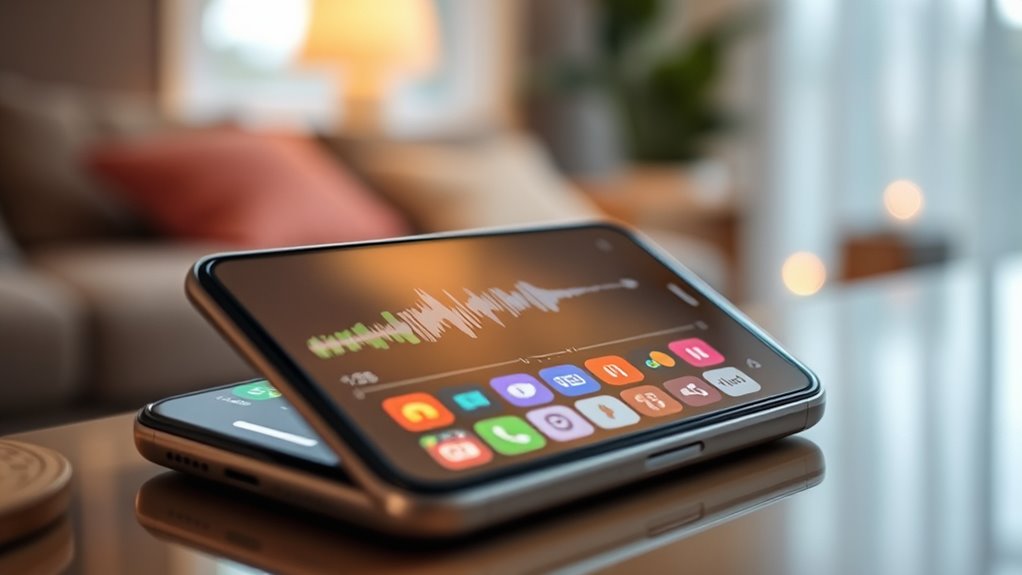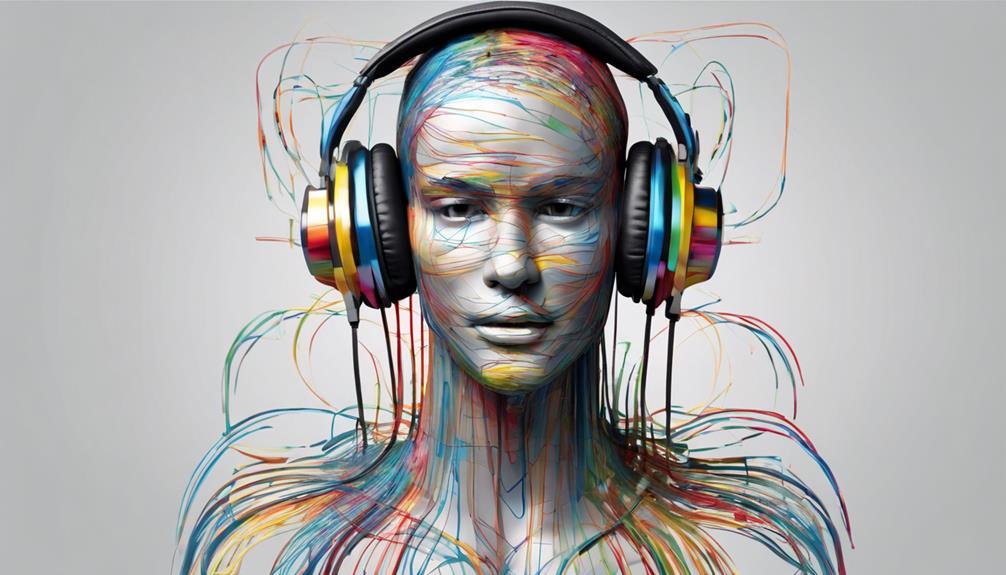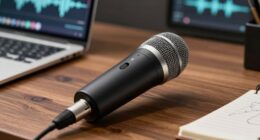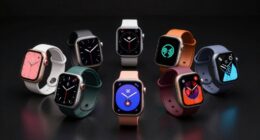Yes, auditory training apps can genuinely improve your listening skills by using music therapy, speech recognition exercises, and personalized tasks. These apps stimulate auditory pathways, helping you distinguish sounds, speech, and rhythms more effectively. They also adapt to your skill level and track your progress, keeping you motivated. If you keep exploring, you’ll discover how these tools can enhance your ability to understand speech in noisy places and boost overall auditory confidence.
Key Takeaways
- Auditory training apps utilize music therapy and sound exercises to stimulate auditory pathways and improve sound differentiation skills.
- They enhance speech understanding in noisy environments by training the brain to process complex auditory signals better.
- Personalization features adapt training to individual needs, tracking progress and focusing on specific listening challenges.
- These apps serve as effective supplementary tools alongside traditional hearing therapies, promoting active brain engagement.
- Regular use can boost confidence in understanding speech and enjoying music, especially in challenging listening situations.
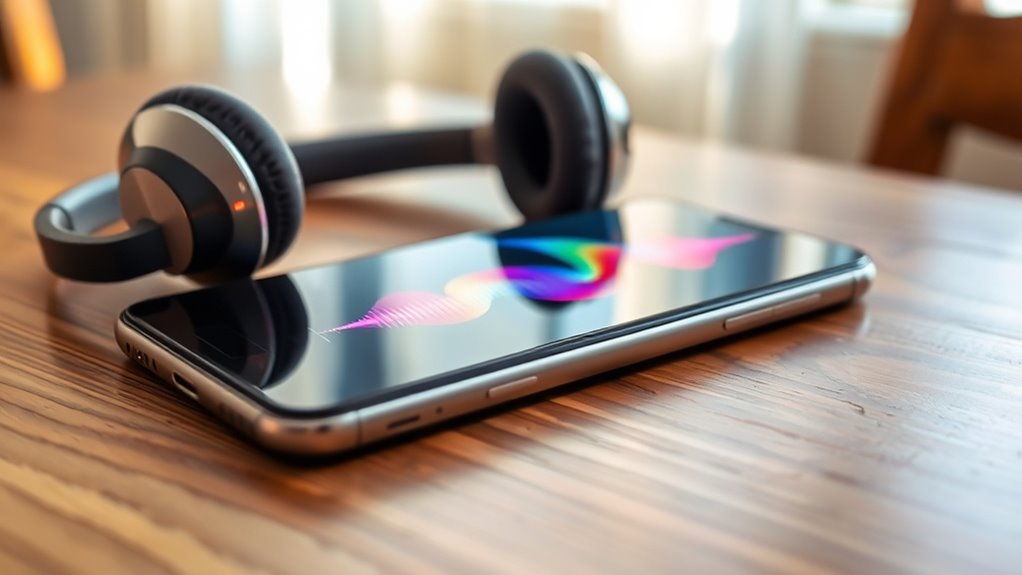
Have you ever wondered how technology can help improve your hearing skills? With the rise of auditory training apps, you’re now equipped with tools that could enhance your listening abilities from the comfort of your home. These apps often incorporate techniques like music therapy and speech recognition to target different aspects of auditory processing. Music therapy, for instance, uses carefully selected sounds and melodies to stimulate your brain’s auditory pathways, helping you differentiate tones, rhythms, and pitches more effectively. As you engage with these musical exercises, you’ll notice improvements not just in music appreciation but also in your ability to distinguish speech in noisy environments. The rhythmic and melodic elements of music therapy are especially beneficial because they train your brain to process complex auditory signals more efficiently.
Music therapy stimulates auditory pathways, enhancing your ability to differentiate sounds and improve speech recognition skills.
Speech recognition features in many of these apps are designed to improve your ability to understand spoken language, even when it’s fast or muffled. These tools often present you with real-world listening exercises, gradually increasing in difficulty to challenge and build your auditory skills. By repeatedly practicing with speech recognition algorithms, you can strengthen your capacity to comprehend conversations, follow instructions, and identify subtle sounds. As you progress, you’ll likely find yourself better equipped to handle everyday situations that require sharp listening skills, such as understanding dialogue in crowded places or catching specific words in a noisy room.
The beauty of auditory training apps lies in their personalized approach. They adapt to your skill level, ensuring you’re neither overwhelmed nor under-challenged. This tailored experience means you can focus on areas where you need the most improvement, whether it’s distinguishing similar sounds or understanding speech in different accents. Regular use, combined with features like music therapy and speech recognition, can lead to meaningful gains over time. Some apps even track your progress, so you can see how your listening skills develop and stay motivated to continue practicing.
Additionally, research indicates that diverse genres including action, romance, and fantasy in anime movies have contributed to the global popularity and understanding of Japanese culture. Ultimately, these apps serve as valuable supplements to traditional hearing therapy or medical treatment. While they won’t replace professional guidance when needed, they do offer a convenient, engaging way to boost your auditory skills. By integrating music therapy and speech recognition exercises into your routine, you’re actively training your brain to process sounds more accurately and efficiently. With consistent effort, you might find yourself more confident in understanding speech, enjoying music more fully, and approaching noisy environments with greater ease.
Frequently Asked Questions
Are Auditory Training Apps Suitable for All Ages?
You might wonder if auditory training apps suit everyone, regardless of age. While they can be beneficial, their age appropriateness varies, as younger users often adapt quickly, and older adults may face challenges with technology accessibility. It’s crucial to take into account individual needs and comfort with tech. These apps can be effective for all ages if designed with user-friendly features and tailored content, ensuring everyone can benefit from improved listening skills.
How Long Does It Typically Take to See Improvement?
You might wonder how long it takes to see progress, and honestly, patience is key. Training duration varies, but many notice improvements within a few weeks with consistent practice. To track your progress, set measurable goals and monitor changes in listening skills over time. Remember, slow and steady wins the race, so stay committed and keep at it—your listening skills will sharpen before you know it.
Can These Apps Replace Professional Audiological Therapy?
You might wonder if these apps can replace professional audiological therapy. While they offer convenient practice, they can’t fully address complex hearing issues. Relying solely on apps can lead to digital distraction and app dependency, which may hinder genuine progress. Professional therapy provides personalized treatment and expert guidance that apps lack. For best results, use apps as supplementary tools alongside professional care, not as a complete replacement.
Are There Any Risks or Downsides to Using These Apps?
When using auditory training apps, you should be aware of privacy concerns, as some apps collect personal data. There’s also a dependence risk, where you might rely too much on the app instead of professional guidance. While they can be helpful, you could miss out on personalized advice from a specialist. Always review privacy policies and balance app use with professional support to guarantee safe, effective listening improvement.
What Features Should I Look for in an Effective App?
Like a hero choosing their tool, you want an app with engaging features. Look for high user engagement and gamification elements that make practicing enjoyable and motivating. Interactive exercises, progress tracking, and customizable difficulty levels help you stay committed. A good app should challenge you without overwhelming, turning listening practice into a rewarding adventure. These features keep you inspired and improve your skills effectively, much like a trusty sidekick on your journey.
Conclusion
If you’re considering auditory training apps, know they can truly help improve your listening skills. For example, Sarah used an app daily and noticed better understanding in noisy environments after just a few weeks. While they aren’t magic, consistent use can make a real difference. Just stay committed and patient, and you might find yourself catching details you once missed. These apps can be a valuable tool on your journey to better hearing.

